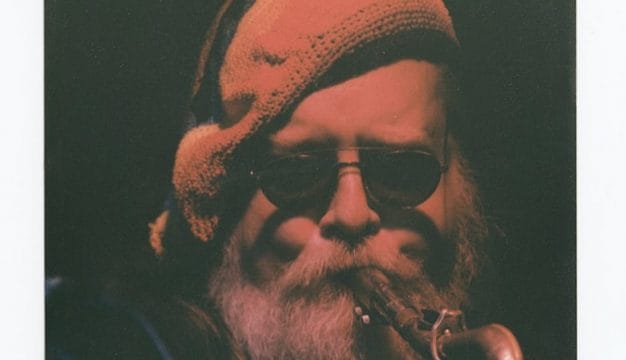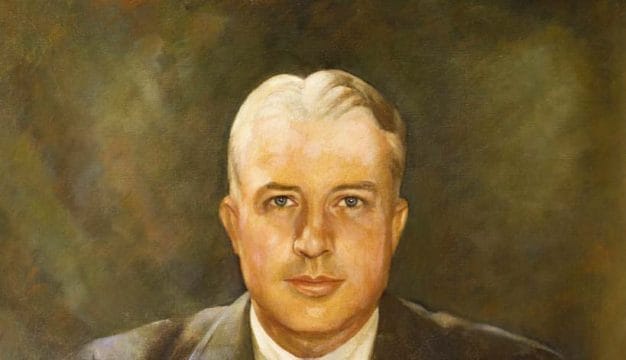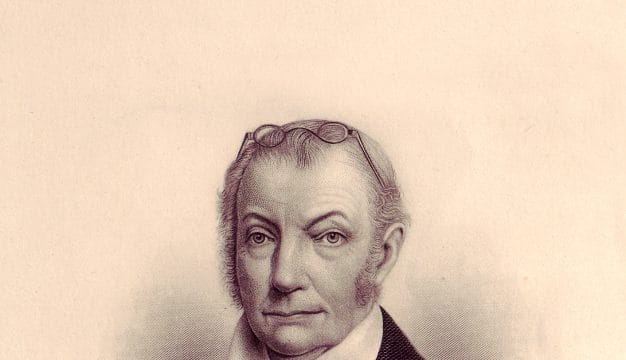Willie King
Willie Earl King (1943-2009) was an outstanding blues musician, songwriter, community activist, and international ambassador for the rich rural Black Belt culture in which he grew up. His authentic, driving blues has been compared to David "Junior" Kimbrough, Robert Lee "R.L." Burnside and James Lewis Carter "T-Model" Ford.
 Willie King
King was born in Prairie Point, Noxubee County, Mississippi, on March 18, 1943, to Robert King and Mary Frazier, one of three children. At age six, after his father left the family, King moved a few miles across the Alabama state line to live with his sharecropper maternal grandparents in Memphis (also known as Old Memphis) in southwest Pickens County. King came from a musical family; his father was an amateur blues guitar player; his grandfather sang gospel and blues; and his grandmother Sue ran a small bar and music club of the type typically referred to as a juke joint. It was here that King first heard a blues musician play, and it would be a transformative experience that inspired a lifelong ambition to play the blues and live the life of a musician. His first instrument was a home-made one-stringed instrument known as a "diddley-bow," which was made by nailing bailing wire to a tree. By age nine, he had graduated to a one-string model that could be brought indoors so that he could play at night. When he was 13, King acquired his first guitar, an acoustic Gibson, that was purchased for him by W. P. Morgan, who owned the plantation on which King worked and lived. King paid off the $60 price of the guitar by doing additional work for Morgan. Morgan became a close friend and mentor to Willie King, an unusual relationship during this period of racial segregation.
Willie King
King was born in Prairie Point, Noxubee County, Mississippi, on March 18, 1943, to Robert King and Mary Frazier, one of three children. At age six, after his father left the family, King moved a few miles across the Alabama state line to live with his sharecropper maternal grandparents in Memphis (also known as Old Memphis) in southwest Pickens County. King came from a musical family; his father was an amateur blues guitar player; his grandfather sang gospel and blues; and his grandmother Sue ran a small bar and music club of the type typically referred to as a juke joint. It was here that King first heard a blues musician play, and it would be a transformative experience that inspired a lifelong ambition to play the blues and live the life of a musician. His first instrument was a home-made one-stringed instrument known as a "diddley-bow," which was made by nailing bailing wire to a tree. By age nine, he had graduated to a one-string model that could be brought indoors so that he could play at night. When he was 13, King acquired his first guitar, an acoustic Gibson, that was purchased for him by W. P. Morgan, who owned the plantation on which King worked and lived. King paid off the $60 price of the guitar by doing additional work for Morgan. Morgan became a close friend and mentor to Willie King, an unusual relationship during this period of racial segregation.
As a teenager, King began studying guitar and blues with local veteran blues musicians like "Po'" Andrew Harris, the Duck Brothers (Charlie, Albert, and Vandy), Jessie Daniels, and "Birmingham" George Conner. His sound and technique also were influenced by recorded music and the radio. Along with regional blues artists, King cited Chester Arthur "Howlin' Wolf" Burnett, McKinley "Muddy Waters" Morganfield, Sam John "Lightnin'" Hopkins, and John Lee Hooker as his major influences.
King's first performance occurred at age 18 at a Mississippi house party, where he played the only two songs he knew all night, for a fee of $2.00. By age 20, he was regularly performing solo acoustic country blues at house parties and juke joints in west Alabama and east Mississippi. King joined his first group about three years later, playing electric blues with local bluesman Jessie Daniels. Into his early 20s, Willie was farming, playing the blues, and making moonshine.
In 1967, King moved to Chicago, being part of a large-scale movement north by southern African Americans known as the Great Migration. He lived there with one of his two sisters, just blocks away from Howlin' Wolf's home club, Silvio's, where King spent much time. Other than his opportunities to play in the West Side and South Side blues clubs with long-time musical heroes and mentors Muddy Waters and Howlin' Wolf, King did not enjoy city life. After about a year, King returned to his home in Old Memphis. There, he continued playing the blues, traveling the rural roads, talking politics, and doing a variety of different jobs.
Moved by the many racial injustices he saw around him, King soon joined the civil rights movement and later was involved with the Highlander Research and Education Center, a social activist training facility in New Market, Tennessee. There, he met and shared a stage with the renowned folk musician and social justice activist Pete Seeger. Encouraged by his friend and fellow civil rights activist lawyer David Gespass, King began writing original songs that reflected the struggles of the era, which he called "struggling blues." These songs told stories that reflected King's direct experience and spoke to the lives of many people in the region.
At the same time King was gaining renown on the local scene, he worked to improve the life of his community. In 1989, he founded the Rural Members Association, a non-profit organization dedicated to passing on traditional community life skills, such as woodworking, farming, quilting, and food preservation, to the next generation. That same year, he opened a community center southwest of Aliceville, Pickens County, where he implemented a program of traditional skills workshops aimed at educating the younger generation in not only agricultural skills but more broadly the whole set of caring and supportive values that maintained impoverished African American communities in the past. King and the Rural Members Association sponsored classes in blues music, farming, woodworking, quilting, food preservation, and other rural African American traditions and provided transportation, legal assistance, voter registration, and other services for the needy of Pickens County for more than 20 years. King also joined with the Alabama Blues Project to provide blues education programs throughout Alabama and beyond.
In 1997, King organized the Freedom Creek Festival in Pickens County to celebrate traditional blues music and also to help break down cultural barriers and bring together members of the community to promote understanding and friendship. The festival showcased many unrecorded and unrecognized regional blues musicians, and it grew to include internationally renowned artists such as Birmingham native Sam Lay and Mississippians T- Model Ford and David "Honeyboy" Edwards. The festival gained an international reputation and continues as an annual event in Pickens County.
 Willie King at Bettie's Place
In 1999, King made his first recording, an independently produced CD titled Walkin' the Walk, Talkin' the Talk, with "Birmingham" Conner. In 2000, he released the self-produced I Am The Blues with all original songs. In the same year, renowned blues scholar Jim O'Neal recorded King's third CD, Freedom Creek, for his Rooster Blues label, capturing many of King's "struggling blues" songs. This CD was recorded live at Bettie's Place, a small juke joint in Noxubee County, Mississippi, just over the line from King's home in Alabama; it won Living Blues Magazine's best contemporary blues album award. The CD was followed by the 2002 studio recording Living in a New World. King was again recorded at Bettie's Place for Hollywood producer/director Martin Scorsese's critically acclaimed 2003 documentary Blues Story, being featured in the first episode, "Feel Like Going Home." The following year, King recorded another self-produced title, Jukin' At Bettie's. His last recording was the 2006 self-produced album One Love. In 2007, King's life was the subject of a documentary DVD titled Willie King: Down In The Woods, released by Visible World Films.
Willie King at Bettie's Place
In 1999, King made his first recording, an independently produced CD titled Walkin' the Walk, Talkin' the Talk, with "Birmingham" Conner. In 2000, he released the self-produced I Am The Blues with all original songs. In the same year, renowned blues scholar Jim O'Neal recorded King's third CD, Freedom Creek, for his Rooster Blues label, capturing many of King's "struggling blues" songs. This CD was recorded live at Bettie's Place, a small juke joint in Noxubee County, Mississippi, just over the line from King's home in Alabama; it won Living Blues Magazine's best contemporary blues album award. The CD was followed by the 2002 studio recording Living in a New World. King was again recorded at Bettie's Place for Hollywood producer/director Martin Scorsese's critically acclaimed 2003 documentary Blues Story, being featured in the first episode, "Feel Like Going Home." The following year, King recorded another self-produced title, Jukin' At Bettie's. His last recording was the 2006 self-produced album One Love. In 2007, King's life was the subject of a documentary DVD titled Willie King: Down In The Woods, released by Visible World Films.
King was a prolific performer, playing the vast majority of his shows in and around Old Memphis but also nationally and internationally. His significant U.S. festival performances included the King Biscuit Blues Festival in West Helena, Arkansas, the Richmond Folk Festival in Virginia, the Sunflower River Blues & Gospel Festival in Clarksdale, Mississippi, and the Pocono Blues Festival in Pennsylvania. King played in Europe on several occasions, performing twice at the Cognac Blues Passion Festival in Cognac, France, at the Rootsway Blues 'n' Roots & Food Festival in Parma, Italy, and the Blues 'n' Jazz Festival in Rapperswil, Switzerland.
King was married for a brief time and had at least one daughter, but accounts regarding other children are ambiguous. On March 8, 2009, King died unexpectedly of a heart attack on the way from his home in Old Memphis to the nearby hospital in Macon, Mississippi, for treatment for an illness. He is buried at Spring Hill Baptist Church in Macon, Mississippi, just a few miles from his home.
King's honors include a number of awards from Living Blues Magazine, including Best Blues Artist (2001) and Blues Artist of the Year (2003); an Artist Fellowship from the Alabama State Council on the Arts (2004); and a Druid Arts Award in 2009 from Arts and Humanities Council of Tuscaloosa. He was inducted into the Howlin'Wolf Hall of Fame in 2005, by the Howlin' Wolf Blues Society in West Point, Mississippi, was posthumously awarded the Folk Heritage Award from Alabama State Council on the Arts in 2009, and inducted into the Black Belt Hall of Fame in 2012.
Select Discography
Walkin' The Walk, Talkin' The Talk (1999)
Freedom Creek (2000)
I Am The Blues (2000)
Living in a New World (2002)
Jukin' At Bettie's (2004)
One Love (2006)
Further Reading
- Levey, Jay, and Aimee Gillette. Blues Story. DVD. Los Angeles: Shout! Factory, 2003.
- Rietmeijer, Saskia, and Bart Drolenga. Down In The Woods: The Story of Bluesman Willie King. DVD. Amsterdam: Visible World Films, 2007.





